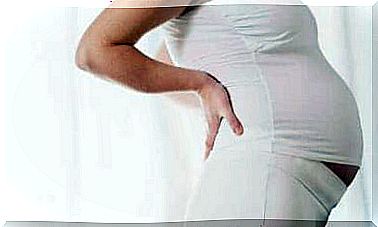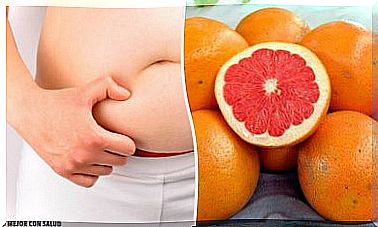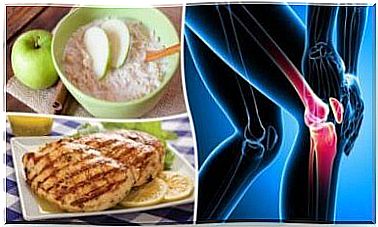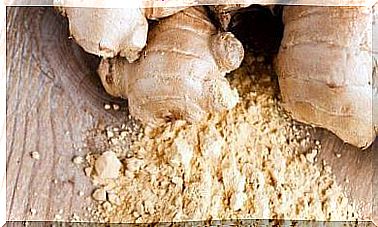Baby Constipation: Causes And Relief

If the baby is unwell and crying, it may be baby constipation. In this article, we’ll talk about what are the most common causes of constipation in babies and how a baby suffering from constipation can be relieved. Don’t miss out!
What is baby constipation?
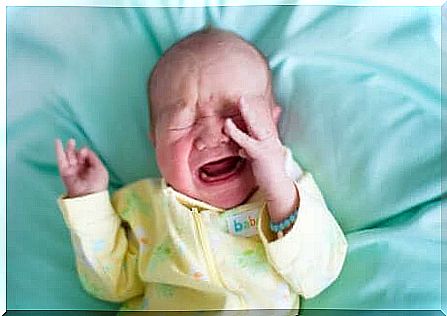
The immature development of the intestinal tissue of infants is one of the main causes of constipation in infants.
Constipation is a common problem in children. It is a fairly common reason to take a child to the doctor, as 0.3-8% of children suffer from it.
Although there is no clear definition of constipation in infants, the general rule is that a baby suffers from constipation when:
- Daily bowel movements are reduced. Some babies defecate four to five times a day, while others do it once a day or just every other or third day.
- The baby has difficulty defecating because the stools are hard.
- The baby is painful during defecation.
- The composition of the faeces has changed. Generally, constipation comes out in small bumps.
- The baby has flatulence and colic.
What, then, can cause constipation in babies? The problem can only be treated when the cause is known. So let’s look at the possible causes of constipation in babies next.
Baby constipation: causes
Before we take a closer look at the causes of constipation in babies, it is important to note that most infants do not suffer from constipation ; in fact, they often defecate several times a day, even after each feeding. Their stools are usually liquid (or very soft) and yellowish orange in color.
Constipation in babies can be caused by:
1. Infant formula
Some babies are prone to constipation from the proteins in the infant formula. According to a study published by the Jornal de Pediatria , babies receiving infant formula were 4.53 times more likely to develop constipation than babies fed mainly breast milk.
Transferring a baby from breastfeeding to infant formula can also cause constipation. Milk substitutes suitable for mild constipation can be found in stores. Ask your doctor for advice on what would be the best breast milk substitute for your baby’s needs.
2. Complementary nutrition
Constipation can also be caused by adding complementary foods to the diet of a breastfed baby. New foods can be the cause of constipation, although babies don’t usually eat a lot of solid food during the first months of life.
Remember that the first foods that should be added to a baby’s diet are fruits and vegetables. Follow your pediatrician’s instructions to prevent constipation or other problems such as food allergies.
3. Constipation in babies can be caused by weaning diapers
Weaning from diapers is one possible cause of constipation in young children. Forcing a pot will lead to stress and even a rejection reaction in some children. This, in turn, can trigger self-inflicted constipation due to the child retaining feces if he wishes to avoid going to the pot.
4. Insufficient hydration
As parents begin to add solid foods to their baby’s diet, they will begin to give the baby water as well. Some babies are unlikely to worry about water at first, and because breast milk intake is reduced, dehydration may occur, especially during the summer.
If the baby does not get enough fluid, his stool may become hard, making it difficult to defecate. Even small ulcers can form in the anus (this may appear as small blood stains on the paper when the baby’s butt is wiped).
5. Constipation in babies can be caused by an illness
Here are some of the most serious causes of constipation in babies:
- Botulism. This disease is caused by the bacterium Clostridium botulinum , which can be fatal. One of its symptoms is constipation.
- Congenital hypothyroidism. The baby either does not have a thyroid gland, does not function normally, or does not develop enough.
- Metabolic syndromes. Some inherited diseases associated with some form of immobility can be an indirect cause of constipation in infants.
- Food allergies. An allergy is the body’s exaggerated response to something it experiences as an intruder. Symptoms can range from hard stools and difficulty passing stools to diarrhea.
Four tips for relieving constipation in babies
Some methods, such as massages, can help your baby defecate. If your baby cries hard and is painful, or if you are worried about yourself, do not hesitate to take your baby to a pediatrician. Your doctor may give you instructions to relieve your baby.
Here are some tips you can use as a preventative method or treatment for constipation:
1. Massages
A baby belly massage may help improve the passage of feces in the gut. Rub the baby’s stomach gently but firmly with the palms of your hands, pressing lightly.
2. Try to get the child moving
If your baby already knows how to crawl, let him do so. All kinds of movements help to improve the passage of feces in the intestines. You can help your baby by moving his legs up and down, just as if your baby was pedaling on a bike.
3. Vegetables, fruits and fiber
If you’ve already started adding solid foods to your baby’s diet, add vegetables, fruits, and fiber to your baby’s meals and reduce stool hardening foods like bananas and rice.
4. Make sure your baby drinks enough fluids
Make sure your baby drinks enough milk and water otherwise your baby’s stools may become hard, making it harder to defecate.
Baby constipation can be caused by a wide variety of causes, and the cause can sometimes be difficult to identify. Do not hesitate to take your baby to a doctor for examination and treatment.
